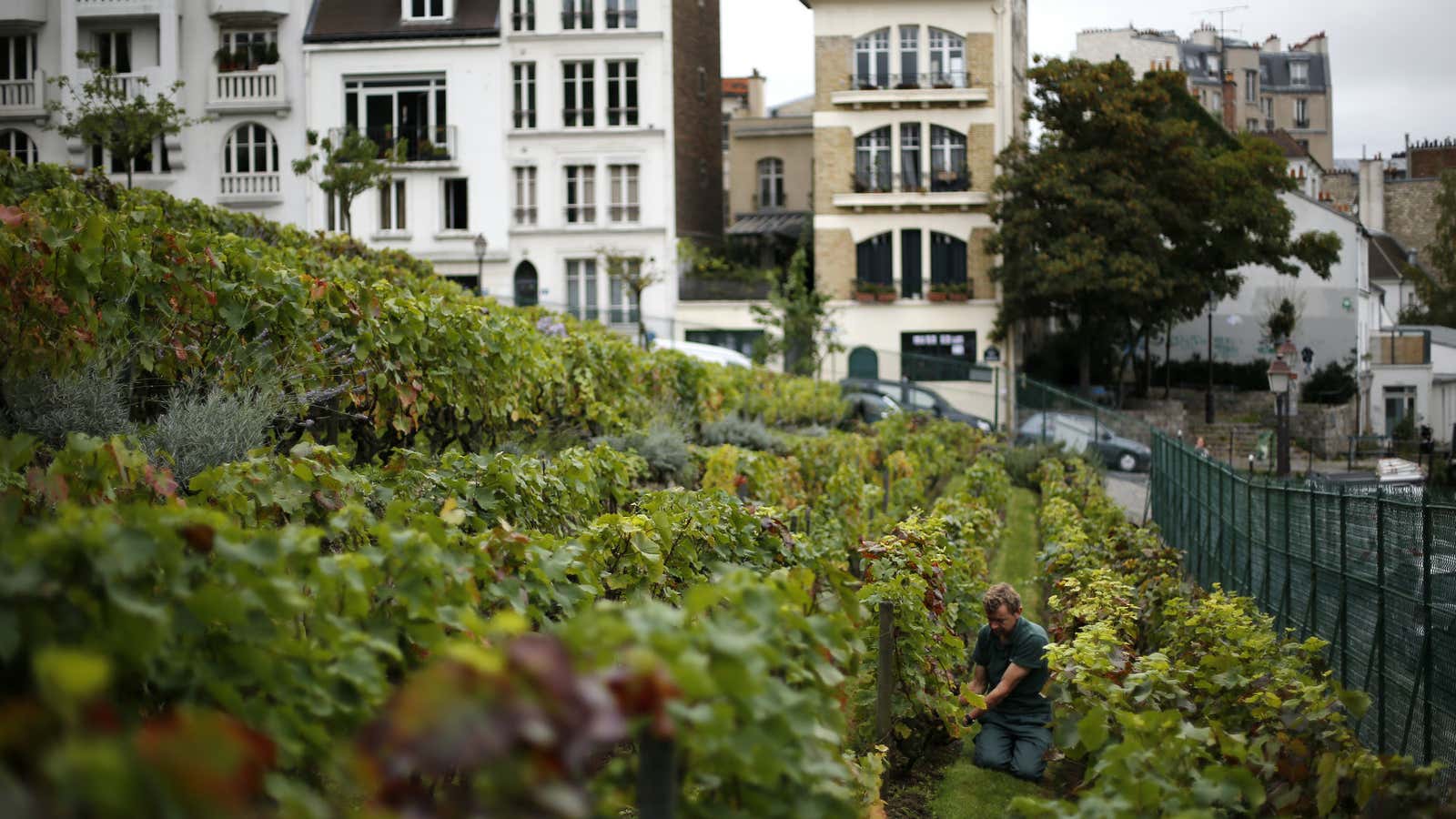Paris
Although France is known for its wine, vintners in Paris are few and far between. That’s because until recently, France restricted planting and commercialization to certain regions—Bordeaux, Burgundy, Champagne and the like. The area in and around the capital was not among them.
That hasn’t stopped people from planting vines near Paris, but these wines are mostly made in small batches for personal consumption or other non-commercial purposes. The most famous Parisian vineyard, Clos Montmarte, is tucked between apartment buildings near one of Montmartre’s busiest streets—it auctions its bottles for charity at a harvest festival every year.
Now, the deregulation of France’s strict planting rules means that many previously unconventional plantations may become mainstream. On Jan. 1, the European Union deregulated winemaking, allowing commercial growers to plant vines just about anywhere. This probably won’t make Paris the next winemaking hub, but it does mean that vines can be planted across the country with a lot less red tape.
Jean-Christophe Bersan, a winemaker in Burgundy, says it’s just what France needs. “It’s going to increase the size of France’s vineyards, have a positive impact on the economy, and widen the selection of lower-priced wines,” Bersan, producer at Domaine Bersan, told Quartz.
Now, for example, vintners in areas such as Picardy and Île-de-France (which contains Paris) can legally grow, bottle, and sell wine commercially. Still, the expansion will be gradual. Any increase in the number of vines will be restricted to 1% of the total existing vineyard area every year, or about 8,000 hectares (20,000 acres).
Some worry that the expansion could hurt the quality of French wine overall.
“Terroir, the quality of the earth, exposure to the sun—they will count for nothing,” Pascal Perrot, mayor of the Champagne village of Vertus, told the BBC last month. “Anyone will be able to make pseudo-champagne, either here or anywhere else.” In France, terroir is the complete natural environment—the soil, the climate—that influences the development and character of a particular wine.
For his part, Bersan in Burgundy thinks there is plenty of scope to expand vineyards and still produce good wines:
If vines have been here for 2,000 years, there’s a reason. There is a decent amount of interesting terroir that isn’t yet planted. In the Languedoc, there are amazing terroirs. There’s enormous potential if we plant more there.
Wine without an appellation—that is, wine grown outside of the usual territories—is positive for the industry and represents an opportunity for growth, he added. “This will bring new energy and employment,” he said. What’s more, “it’s better to plant in the fertile plains of France than in the Australian desert with irrigation pipes.”
Although good wines may someday come from outside the traditional wine regions, France’s traditional producers don’t seem too worried about the potential competition. A spokesman for the Syndicat General des Vignerons de la Champagne told Quartz he doesn’t expect deregulation to have an impact on sales of champagne, even if new growers develop new kinds of sparkling wines.
“Regarding champagne, our response is simple: There’s only champagne in Champagne.”
